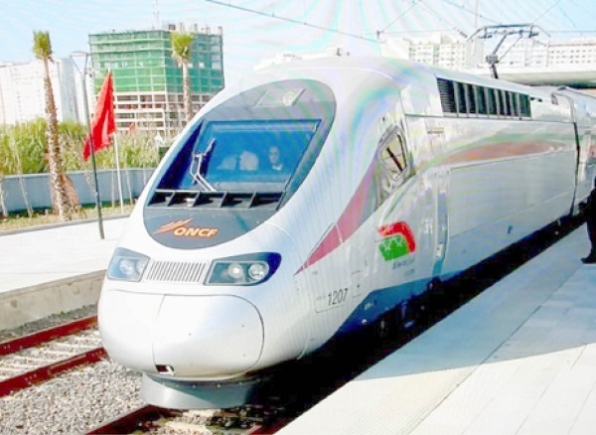
The train to Tangier
Last week, I narrated how the proximity of Spain to Tangier, regarded as Morocco’s Literary Capital, had made the country a popular target of many African migrants, Nigerians inclusive, who were eager to escape to Europe.
Advertisement
In view of that, the European Union had reportedly paid the government of Morocco to help keep off migrants from crossing into Europe. My story continues.
Ruled through the centuries by waves of conquerors including Romans, Vandals, Byzantines, Arabs and Portuguese, the city is more than two and a half millennia old, making it one of North Africa’s most ancient cities. In the last century, Tangier became a hot spot for the international jet set.
Many of us departed the lobby of the Golden Tulip Farah Hotel in Rabat, Morocco, that rainy and cold morning. Writers of all ages and genders, from different backgrounds and nationalities, all united by the love of the written word.
Having been ensconced in the hotel’s conference hall for days, it was time for the multilingual group of writers from Africa, Asia and Latin America to visit the Moroccan literary capital of Tangier.
As our heated bus glided along the well-laid Rabat roads for the three-kilometre trip to the Rabat-Agdal Railway Station, the cosy interior of the bus was a welcome relief to the frosty outdoor weather.
Language
As we later boarded the Al Boraq, Africa’s first high-speed train for the one hour and 10 minutes journey to Tangier, we congregated into small clumps of writers based on our language proficiency.
It was okay in the conference hall where interpreters made communication easy via headphones. However, matters were different on the train, where communication was limited among some writers to half gestures, nodding of heads and hand signals.
It was the need for better communication that made some writers congregate into small clumps of writers based on their language background.
And while the Arabic-speaking writers who were mainly from Lebanon, Egypt, Jordan and Morocco sat together, those from Asia sought refuge among writers from Bangladesh, Afghanistan and Nepal.
The Vietnamese writers sat together just as the writers from the French-speaking African countries of Ivory Coast, Senegal and Cameroun. However, some writers were polyglots and so, could mix freely.
Seeing writers such as the Pakistani, Imdad Aakash; the Nepalese, Yug Pathak; the Russian, Oleg Bavykin; as well as our Administrative Secretary, Randa Barakat from Egypt, among others, switching effortlessly from their native languages to French, English and Arabic humbled me.
I soon found myself sharing train seats with the witty Pakistani Poet and Bookseller Imadad Aakash, with whom I quickly struck up a warm relationship.
When he learnt that I successfully straddle the tripod of literature, medicine and politics, his bemused eyes lit up as he asked; ‘When do you sleep?’
The Al Boraq
The first of its kind on the African continent, the Al-Boraq is a 323-kilometre-long high-speed rail service between Casablanca and Tangier, operated by ONCF in Morocco.
The train, inaugurated by Morocco’s King Mohammed VI and French President Emmanuel Macron in November 2018, runs at speeds of up to 320km/h between the glossy new Tangier Gare and Casa Voyageurs stations, stopping at the industrial city of Kenitra and the capital Rabat, before going on to sprawling and magnificent Casablanca.
King Mohammed VI named the high-speed service Al Boraq in reference to the mythical creature that transported the Islamic prophets, notably the Prophet Muhammad, from Mecca to Jerusalem during the night journey.
We travelled in the air-conditioned First Class cabin with its plush comfortable seats, abundant leg room and an interior design that evoked the golden age of rail.
Down the end of the carriage was a television screen that constantly displayed messages in French and Arabic, including information about the train’s speed. Everything about the train was impressive.
However, while the Al Boraq may appear to be very impressive, some Moroccans were not happy with the train system, which reputably cost the Moroccan Government a whopping $2 billion.
Apart from the belief that the train is an expensive folly whose funds would have been better spent on overcrowded schools or the overtaxed medical system, this group of Moroccans even questioned the economic viability of the heavily subsidised transport system.
On the other hand, the train’s proponents praised the Moroccan government for the high-tech modern marvel. They believe that the benefits of having such a futuristic infrastructure will “trickle down” to the rest of Morocco.




